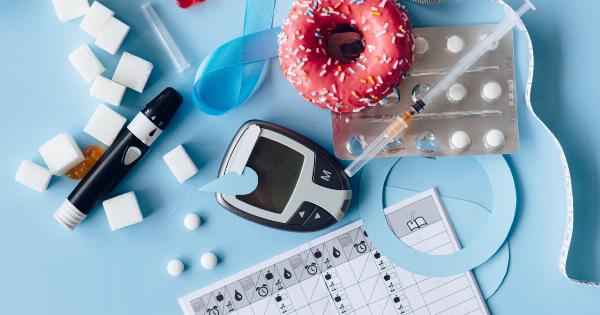Diabetes is a chronic disease that affects millions of people worldwide. It is a metabolic disorder that occurs when your body is unable to produce insulin properly or use it effectively.
Insulin is a hormone that helps regulate glucose levels in your body. Individuals with diabetes struggle to maintain healthy blood sugar levels making it necessary to follow strict dietary measures.
What the research found?
A recent study conducted at Sapienza University in Rome, Italy, and published in the journal BMJ Nutrition, Prevention & Health suggests that consuming two large meals a day may be more effective than consuming small, frequent meals for managing diabetes.
The research involved 47 participants aged 35-65 with type 2 diabetes, and found that those who consumed two large meals a day lost more weight, experienced less hunger after meals and had a higher quality of life.
While the participants consumed the same number of calories, those who ate two large meals a day consumed fewer carbohydrates, which helped improve their glycemic control.
Why two meals a day may be the better option for diabetics?
The study’s lead author, Dr. Daniela Jakubowicz, explained that consuming two large meals a day as opposed to several small meals helps the body produce less insulin, leading to better glucose control.
Insulin resistance is the hallmark of type 2 diabetes, and insulin resistance is the main struggle for people with diabetes.
When you eat, your body produces insulin to help transport glucose from the bloodstream into cells where it can be used for energy. However, people with diabetes have difficulty using insulin efficiently, leading to high blood sugar levels.
By limiting the number of times your body produces insulin, you can improve insulin sensitivity, thereby enhancing glycemic control.
What diabetics can eat for two large meals?
The study’s findings recommend that diabetics consume two large meals rich in nutritious food such as fish, vegetables, and whole grains.
Protein-rich food such as chicken and lentils can help control blood sugar levels because they are digested slowly.
It is also recommended that diabetics avoid processed and sugary foods, which can lead to unhealthy weight gain and worsen insulin resistance.
Diabetics should also be mindful of portions, avoid eating late at night, and engage in physical activity regularly for better results.
What other research recommends for managing diabetes?
Research conducted by the American Diabetes Association suggests that diabetics should follow a balanced diet that contains low amounts of refined carbohydrates, high in fiber, and low in saturated fat.
Aside from diet, physical activity and medication can help manage diabetes. Regular exercising, such as walking, cycling, swimming, or aerobic activity, helps improve insulin sensitivity, lowers blood pressure, and reduces the risk of heart disease.
Conclusion
The Italian study suggests that consuming two large meals a day can be a simpler, more effective way for diabetics to manage their condition.
While research in this area is ongoing, it provides a basis for people with diabetes to experiment with their dietary choices and find what works best for them. Diabetics should work with their healthcare provider to determine the best dietary and physical activity plan to manage their condition.
























